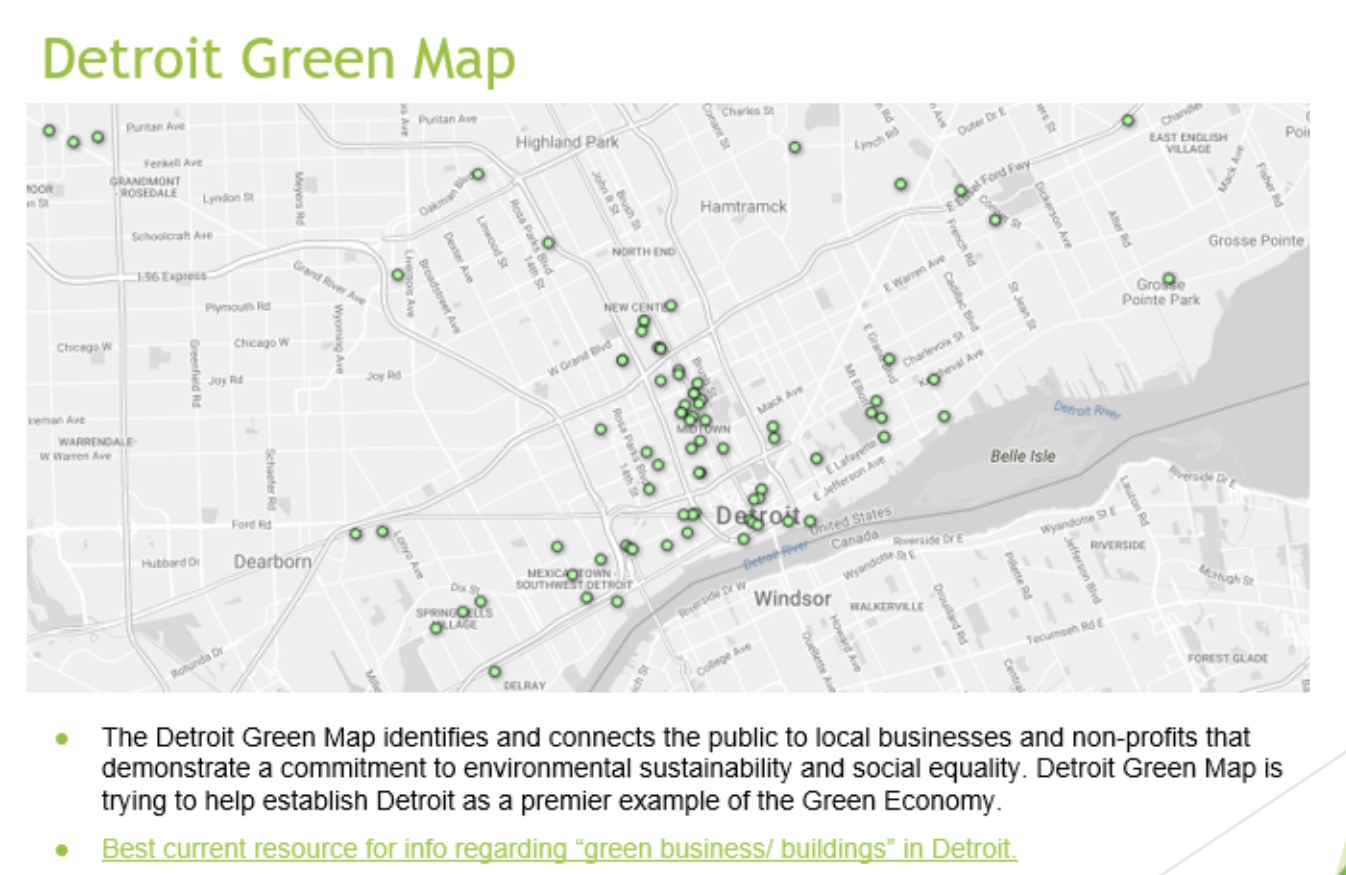Wayne State urban planning students design a more sustainable Detroit

As the city of Detroit continues to surge toward revitalization, Wayne State University Master of Urban Planning (MUP) students are pushing for more sustainable practices along the way.
This summer, the students presented five sustainability-focused urban planning projects to Joel Howrani-Heeres, director of Detroit's new Office of Sustainability. Their hope is that the office will use their proposals to assist in the development of Detroit.
Their primary area of focus was the Detroit Green Building Policy - an attempt to make Detroit more environmentally friendly in the rebuilding process. MUP student Raven Wright says, "Converting buildings to become more environmentally friendly not only improves the quality of health for residents, but can also be economically beneficial for businesses in the city."
Wright presented with a group who explained how adopting the "triple bottom line" approach could be valuable to businesses. This approach encourages businesses to take the environment, economy and society into consideration when adopting business plans.
"Businesses can benefit from this approach by having a minimum impact on the environment, adopting cost-effective solutions, and improving health and aesthetic qualities," Wright says.
The students chose to cover this particular issue because of the large number of buildings in need of revitalization in Detroit. She believes these buildings could benefit from the triple bottom line approach and the Green Building initiatives. Wright hopes to see Detroit as a place that is both vibrant and clean for residents.
Student Nicholas Dupuis created a proposal with his group on parking and its detriments to urban sustainability. "Parking lots can be major impediments to environmental sustainability," he says. "They contribute to the urban heat island effect, groundwater pollution and air pollution, but they can also be useful tools in combating the same exact issues."
Through his research, Dupuis learned that 22 percent of Detroit's parking lots are ground cover lots which cause the most damage to the environment. One way to fix this issue would be to build more parking structures instead of surface lots.
Dupuis found that there's more than enough room in the city to change these lots into structures. "Above ground and below ground parking is extremely expensive to build, so the zoning ordinance may be amended to include more incentive to developers to build structures instead of surface lots," Dupuis says.
The students were eager to help make a difference when submitting their projects to the Office of Sustainability. Wright says, "I was nervous at first but then I thought about how the presentation could help the city, residents and local businesses."
Rayman Mohamed, chair of WSU's Department of Urban Studies and Planning, says these types of student-led projects are in an integral part of many Wayne State MUP classes. Because the program focuses on topics such as divisive public policy, de-population and segregation, similar projects are the focus of other courses.
Mohamed believes that projects like this are imperative as sustainability is the most important concept for the development of cities like Detroit. "The range of issues is large, from the efficient utilization of resources to the equitable distribution of the benefits of redevelopment. These projects are concerned about placing Detroit at the forefront of efforts to promote sustainability."